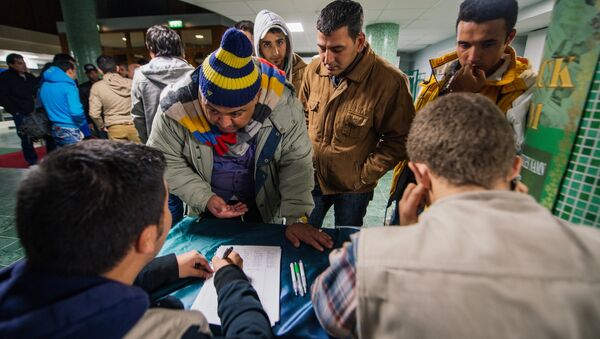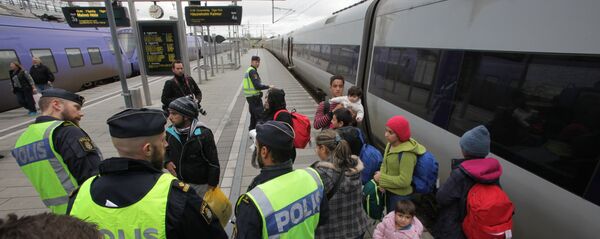The interpreter herself was reported to have a Christian Iraqi background. While tens of thousands of Christians have been enslaved by Daesh or forced to flee Northern Iraq and neighboring parts of Syria, they are commonly discriminated against by Muslim refugees.
She had responded negatively to a journalist's lament regarding the stricter asylum laws. She explained that "many" Arabs who come to Sweden lie and exaggerate how bad they had it in their home countries in order to more easily obtain asylum.
"Arabs do not have it that bad in their home countries. They can live anywhere, in Syria or any other Arab nation. Nobody forces them to come here," the female interpreter said, as quoted by Dagens Nyheter.
Now, the woman has been suspended from her job at the Migration Board, whereas the case itself has been reported to the Legal, Financial and Administrative Services Agency for ethical investigation.
At the end of 2015, 16 percent of Sweden's population (just over 1.6 million people) were born abroad. About half of all foreign-born people hailed from a European country. Historically, Finland has long been the most common country of birth among immigrants in Sweden. The second most common country of birth among immigrants in Sweden today is Iraq, followed by Poland, according to Statistics Sweden.
Immigration to Sweden took off after World War II, when the Swedish economy was booming and there was a shortage of personnel in the Swedish industry. Until the 1970s, migrant laborers mostly came from countries with high unemployment, such as other Nordic nations and other European countries. After 1980s, Sweden intensified its humanitarian efforts and labor migration was slowly replaced by refugees and asylum-seekers.




